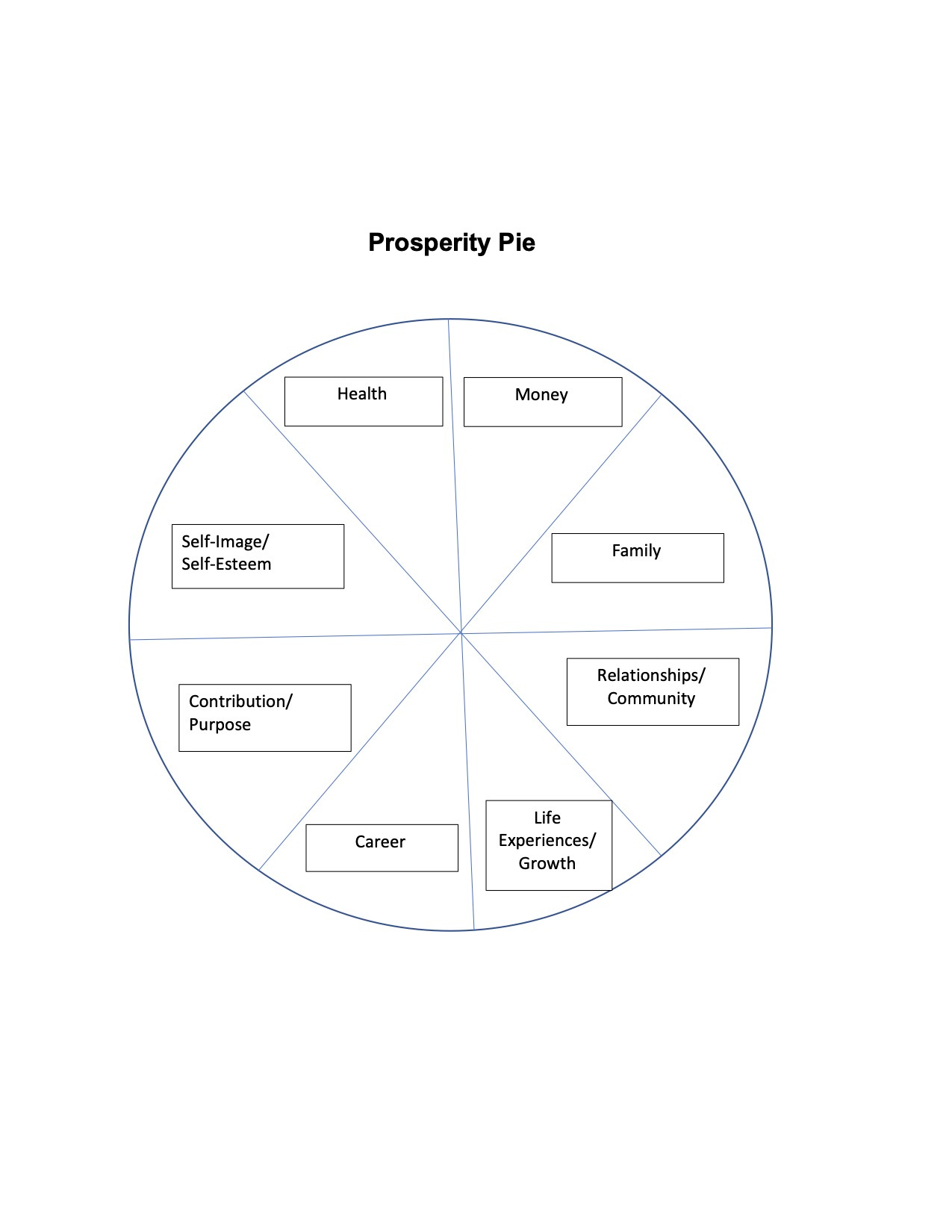We just wrapped week two of a Prosperity and Spiritual Economics class I’m teaching. It’s the first time I’ve taught this class so I’ve been immersed in developing the materials and re-reading books that have been on my shelves for a few years.
This is not a financial advice course but rather explores our values, programming and thinking around prosperity, money, wealth, etc. We live in a money-obsessed culture to be sure and in a system that requires money and makes is it very difficult for people without much money to get by. For many, myself included, money concerns and fear have been the greatest cumulative source of stress in our lives. But money is just one aspect of prosperity.
Prosperity, or lack thereof, also includes, health, family, relationships, making a contribution, etc. For me, having control over my schedule, working from home, and being able to play agility with my dog are huge aspects of overall prosperity.
In prepping for this class, I had an “aha” moment when I realized that another component of prosperity is self-esteem or self-image. In his classic book, Spiritual Economics, Eric Butterworth writes:
“[Y]ou do not see things as they are, but as you are. You will always tend to act like the person you conceive yourself to be. This is your self-image. As Emerson says, you surround yourself with the image of yourself. If your self-image is faulty, you project its limitation into every experience. Many inadequate job situations are the direct results of a self-image of inadequacy being impressed on the job experience. But you can change the way you see yourself.
I have a loved one who’s had a tough life including substance abuse, a decade in prison, and terrible trauma from his parents. He has struggled finding his way post-incarceration and believes his number one need is more money, but if I could wave a magic wand on his behalf, I’d grant him healing from cripplingly low self-esteem that has, so far, left him with a deeply-ingrained, “I can’t” attitude and sense of shame.
In the same book noted above, Butterworth makes the point that similar to a healthful diet we can develop more wealthful ways of thinking. The most important step is taking dominion over the thoughts we hold about ourselves, what we are, and our innate value.
Doing this self-reassessment and redefinition isn’t made any easier by the fact that we’re all swimming through a cultural soup of comparison and scarcity messaging. Billions and billions of dollars are spent trying to get us to feel insufficient so that we buy, buy, buy trying to fill a manufactured gap. As part of this we’re encouraged to compare ourselves to images and stories, many of which are airbrushed and artificial. A step in wealthful thinking is recognizing the artifice and curbing comparison.
Considering self-esteem or self-worth as an aspect of prosperity has helped me shift feelings about certain hardships. A critical and judgmental family was a catalyst at a young age to begin identifying my own values and motives. A multi-year period of being maligned, and having my work and values denigrated in the media was the gift wrapped in barbed-wire that prompted me to release the need for external validation to feel valuable. I don’t know if everything happens for some higher purpose but I do know we can make purpose of everything that happens.
Keep reading with a 7-day free trial
Subscribe to TRANSCEND with Cylvia Hayes to keep reading this post and get 7 days of free access to the full post archives.




